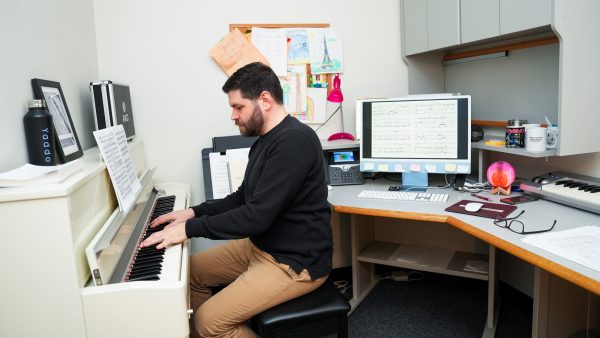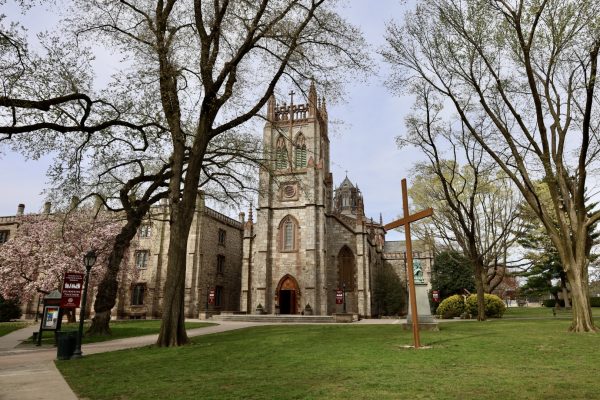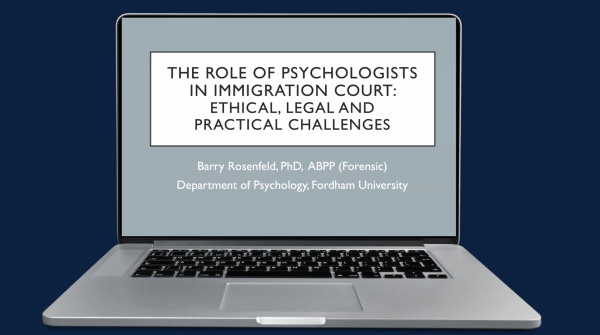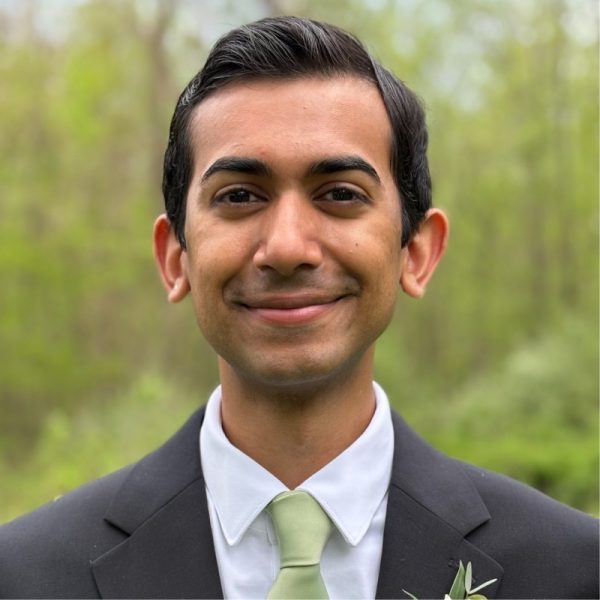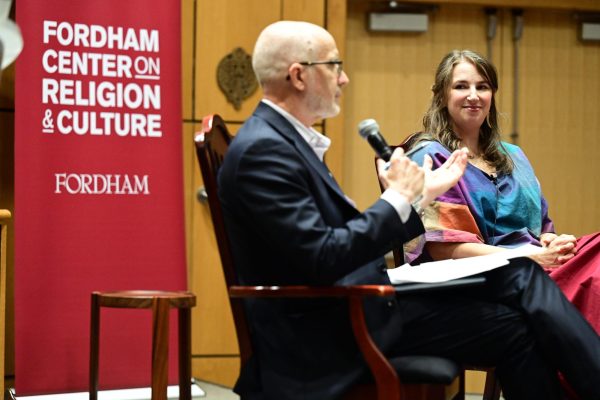USG Recognizes Indigenous People’s Day and Calls on University Action
On Monday, Oct. 11, Rose Hill’s United Student Government (USG) released an official statement recognizing Indigenous Peoples’ Day and calling on the university to do the same.
The statement, posted on USG’s official Instagram account, cited Fordham University as one of only two Jesuit universities in the United States that still recognize Columbus Day. The post also included the land acknowledgment that USG members want the university to officially adopt.
Land acknowledgments are used today “to recognize Indigenous Peoples who are the original stewards of the lands on which we now live,” according to the National Museum of the American Indian. In recent years, it has become more common for American colleges and universities to adopt land acknowledgments; notable institutions that have done so include Harvard University, Columbia University and Northwestern University.
The land acknowledgment proposed by USG members for Fordham University reads as follows: “We pause to acknowledge that Fordham University occupies the land of the Munsee-Lenape and the Wappinger Peoples. As a community dedicated to the ideals of Jesuit education, Fordham aspires to show appreciation, respect and concern for all Peoples of this land. We acknowledge the long and complex history that has brought us to reside on this land, and we seek to evaluate the ongoing effects of settler colonialism and our participation in that process. We remember the Indigenous Peoples’ connection to this region and appreciate the opportunity to live, learn and pray in their traditional homeland. We honor the Elders of the Munsee-Lenape and Wappinger Peoples, as well as all other Indigenous Caretakers of these lands and waters before us, the Indigenous Peoples today and the generations to come.”
USG also provided a list of changes it would like to see implemented at Fordham in its Instagram post. These included reading a land acknowledgment during major university ceremonies, installing formal plaques with the land acknowledgment on campus and expanding Indigenous-related courses for major and minor options at Fordham.
Teresa Jacobs, FCRH ’23, has helped lead the USG initiative to get the university to adopt an official land acknowledgment and change its official calendar to recognize Indigenous Peoples’ Day instead of Columbus Day. Jacobs first got involved with USG during her freshman year through membership in the Diversity Action Coalition (DAC), a subcommittee of USG.
Jacobs said that as a senior in high school, she helped her school adopt a land acknowledgment. “It was a trimester-long project that we worked on in our history class with one of our teachers,” said Jacobs. “We did a lot of research on land acknowledgments — the purpose of it and how to do it in a way that is actually reflective of the needs of the people that you want to give voice to, as opposed to making it a performative thing.”
When she came to Fordham, Jacobs wanted to use the research she did in high school to help push Fordham to adopt its own land acknowledgment and denounce Columbus Day. “I feel like, in the way Fordham is oriented, it focuses on its history and Jesuit values,” said Jacobs. “In order to align with that perspective … it’s important for Fordham to recognize that glorifying settler colonialism is not reflective of those goals. What would be reflective [of these goals] is giving light to the voices of those who have been disenfranchised and bringing light to the history of the land that Fordham settled on.”
Jacobs said USG members have met with local Indigenous leaders and groups to ask for their perspectives on their land acknowledgment project. The group has also done additional research on the history of Indigenous people in the New York area. Through this research and collaboration, Jacobs said she has realized Fordham could do more to provide support for Indigenous communities. She said she wants the university to provide access to meeting spaces for local Indigenous groups who might otherwise struggle to find space to hold meetings and events.
Camila Gomez, FCRH ’22, is vice president of Diversity and Inclusion at USG and has also been involved with DAC for a while now. She said DAC has also been working to garner alumni support for both the land acknowledgment and Indigenous Peoples’ Day proposals.
Gomez stressed the importance that the university stop recognizing Columbus Day as an official holiday. “When we celebrate a day and call it Columbus Day, I think there are implications to that celebration,” said Gomez. “Colonialism is a project that continues to this day, and [we shouldn’t be] celebrating a colonizer and celebrating someone that has caused such great damage to people, generations and cultures.”
Chief Diversity Officer Rafael Zapata said he has been meeting and communicating with students from USG about the land acknowledgment and Indigenous Peoples’ Day proposals. He said his office has been focusing on facilitating conversations among members of the Fordham community surrounding the two initiatives. Zapata said his office has established an Indigenous Working Group that has been leading these conversations.
Zapata pointed out that, broadly speaking, the Jesuit community has become increasingly focused on fostering relationships with Indigenous communities. This goal was mentioned in the most recent Universal Apostolic Preferences of the Society of Jesus.
Zapata said that while he understands some students at Fordham may be eager to see Fordham adopt a land acknowledgment and officially recognize Indigenous Peoples’ Day over Columbus Day, his office is still focused on making sure these policies are discussed extensively among members of the university community.
Zapata pointed out, for example, that Columbus Day is still culturally important for many Italian Americans, and their perspectives are also necessary for these conversations. “We need to wrestle with this issue so we can hear from and learn from each other,” said Zapata. “Through dialogue, we arrive at a resolution that we can all understand.”
Zapata said he has been working with members of the Committee on Student Experience in the Faculty Senate on these initiatives as well. His office is also working on identifying faculty members with “expertise in relevant historical areas” to help facilitate dialogue about a land acknowledgment and Indigenous Peoples’ Day.
Right now, Jacobs and Gomez said USG and DAC members are focused on gathering widespread student support for both initiatives. Specifically, they are seeking written support from other student leaders on campus that belong on executive boards of Fordham clubs. USG currently has an online form linked in its Instagram bio where club leaders can express their support for the land acknowledgment. USG asks club leaders to hold a vote among e-board members of their clubs to decide whether their group supports the land acknowledgments. Once that vote is complete, these students can sign the form.
Gomez said she encourages individual students to begin by educating themselves on land acknowledgments and the Indigenous groups native to New York. “I think a lot of students don’t even know that this is a thing,” she said.
Like Zapata, Gomez said it’s important to her and other USG members that they invite members of the Fordham community into conversations about the land acknowledgment and Indigenous Peoples’ Day proposals. “When we do policies like this, we always try to frame it in a ‘call-in’ method rather than a ‘call-out’ method,” said Gomez. “We want to call people into this space of learning to understand privilege, to understand the implications of your actions, to understand what it means to be a student at a Jesuit university. We never want to call people out and just say, ‘This is wrong. You’re wrong.’”
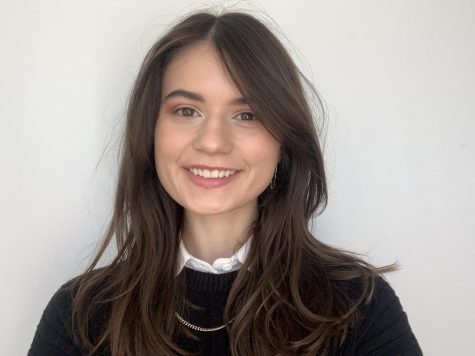
Abbey Delk is a junior from Wheeling, West Virginia, double majoring in English and journalism and minoring in film & television. Her career at the...






































































































































































































